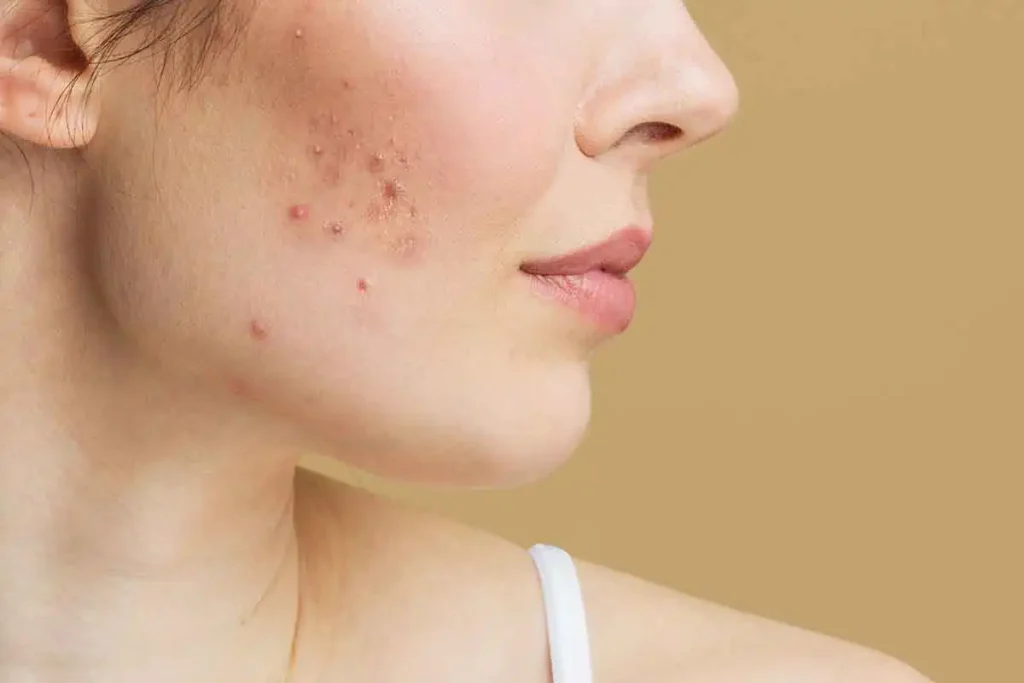Touching your face is a common habit that most of us do unconsciously. You may rub your eyes, scratch your nose, or rest your chin on your hand without even noticing. However, this seemingly harmless habit can have serious consequences for your health and your skin. Here are some reasons why you should stop touching your face and how to do it.
Touching your face can spread germs and cause infections
Your hands are constantly in contact with various surfaces and objects that may harbor germs, such as bacteria, viruses, fungi, and parasites. When you touch your face, you can transfer these germs to your eyes, nose, mouth, and ears, which are the main entry points for infections. This can increase your risk of getting sick, especially during cold and flu season or during a pandemic.
Some of the diseases that can be transmitted by touching your face include:
- The common cold
- The flu
- COVID-19
- Conjunctivitis (pink eye)
- Staphylococcus aureus (staph infection)
- Streptococcus pyogenes (strep throat)
- Herpes simplex virus (cold sores)
- Acne
- Impetigo
- Eczema
- Psoriasis
To prevent the spread of germs and infections, you should wash your hands frequently and thoroughly with soap and water, or use an alcohol-based hand sanitizer if soap and water are not available. You should also avoid touching your face as much as possible, especially when your hands are dirty or when you are sick or around someone who is sick.
Touching your face can damage your skin and cause premature aging
Touching your face can also harm your skin and make you look older than you are. When you touch your face, you can:
Touching your face is a common but harmful habit that can affect your health and your skin. By following the tips above, you can stop touching your face and enjoy the benefits of having a cleaner, healthier, and younger-looking skin.

- Clog your pores and cause acne breakouts
- Irritate your skin and cause inflammation, redness, and sensitivity
- Transfer dirt, oil, and makeup to your skin and cause dullness and uneven tone
- Introduce bacteria and fungi to your skin and cause infections and inflammation
- Scratch your skin and cause wounds, scars, and pigmentation
- Stretch your skin and cause wrinkles and sagging
To protect your skin and maintain its health and beauty, you should follow a regular skincare routine that suits your skin type and needs. You should also use gentle and non-comedogenic products that do not clog your pores or irritate your skin. You should also avoid touching your face as much as possible, especially when you have acne, wounds, or other skin conditions.
How to stop touching your face
Touching your face is a common but harmful habit that can affect your health and your skin. By following the tips below, you can stop touching your face and enjoy the benefits of having a cleaner, healthier, and younger-looking skin.
- Identify the triggers and situations that make you touch your face, such as stress, boredom, anxiety, fatigue, or hunger. Try to avoid or cope with these triggers in healthy ways, such as breathing exercises, meditation, yoga, hobbies, or snacks.
- Keep your hands busy and occupied with something else, such as a stress ball, a fidget toy, a pen, or a bracelet. This can help you divert your attention and energy from touching your face.
- Use reminders and cues to help you become more aware of touching your face, such as a wristband, a ring, a sticker, or a note. You can also ask someone to remind you or point out when you touch your face, or use an app or a device that can track and alert you of your face-touching behavior.
- Reward yourself and celebrate your progress when you manage to reduce or stop touching your face. You can treat yourself to something you enjoy, such as a movie, a book, a game, or a dessert. You can also share your achievements with your friends, family, or online community and get support and encouragement from them.
